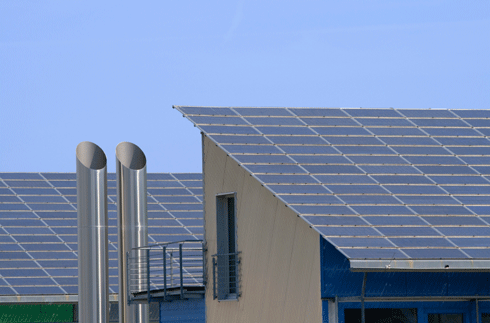
|
Published: 25 March 2013
Cost-effective battery key to small-scale energy storage
Cost-effective electricity storage for residential and commercial renewable energy installations has moved a step closer following the Australian Government’s backing of a pilot project featuring the Ecoult Deka Ultrabattery technology, originally developed by CSIRO.
Ecoult, an Australian energy storage company, was awarded the funding through the government’s Australian Renewable Energy Agency (ARENA) to conduct small-to-mid-sized pilot projects using the UltraBattery technology.
The pilot will develop a battery storage system prototype for three types of distributed energy applications:
-
Off-grid renewable power solutions (known as Remote Area Power Supply);
-
Distributed grid-connected storage to buffer voltage and power fluctuations that arise where there is dense concentration of small roof-top solar installations in residential areas; and
-
Hybrid generation (such as diesel plus renewables) to improve fuel efficiencies.
Ecoult CEO John Wood said the ARENA grant was a vote of confidence in the Australian-invented technology.
‘Ecoult has already demonstrated the success of the Deka UltraBattery technology in megawatt-scale applications in a range of field conditions,’ said Wood.
‘We are now in the process of extending our products and solutions from megawatt (MW)-scale to commercial and residential applications. Our objective is to reduce the cost of energy storage and boost the competitiveness of small-scale renewable energy sources such as roof-top solar panels.’
The pilot project will extend the successful collaboration between Ecoult, its US-based parent company East Penn Manufacturing, and CSIRO.
As research partner, CSIRO will play an important role in the pilot project, developing algorithms to improve the integration of Deka Ultrabattery units with the solar PV panels and increase the value derived from each kilowatt-hour (kWh) of energy storage.
Ecoult is currently implementing Deka Ultrabattery as part of a stand-alone power system for the King Island Renewable Energy Integration Project (KIREIP), being developed by Hydro Tasmania (Australia). The project’s objective is to significantly reduce King Island’s reliance on diesel fuel to supply the island’s energy needs.
Currently, sealed lead acid batteries (VRLAs) are the dominant chemistry used in distributed energy storage. However, these batteries steadily lose capacity with each discharge and must then be 'refreshed' periodically through an overcharge to restore capacity. Overcharging can be disruptive, and ultimately, sacrifices some of the useful life of the battery.
Testing conducted in the United States showed Deka UltraBattery can perform better and for much longer, in deficit charge operations than VRLAs.
‘The Deka Ultrabattery grew out of the ingenuity of the Australian research community,’ said Wood. ‘By encouraging knowledge-sharing, we want to contribute to ongoing collaboration between the research community, government, the battery storage industry and the broader renewable energy industry.’
Source: Ecoult




